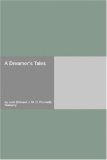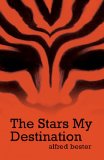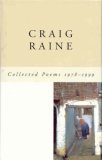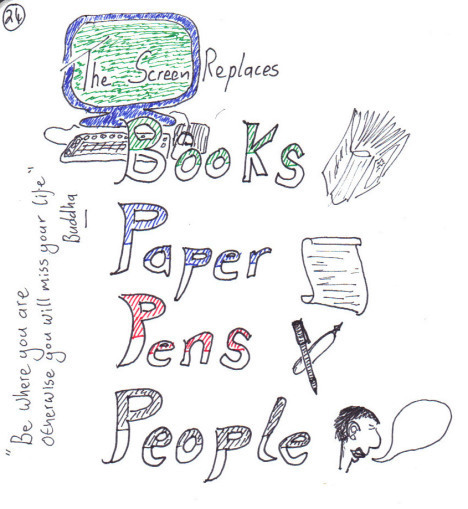Seymour Jacklin's Blog, page 9
August 1, 2012
A Poem: For James
I have a folder with maybe an hundred poems in it; most of them were written between 1994 and 1999 and covered the span of time from GCSEs to my final year at University. In the last thirteen years my poetic productivity has died to a trickle. I have lost my way a bit. I feel embarrassed by the panting romanticism of the early stuff and the technicolour emotions and tangible intimations of immortality that fueled my late teens are not as keenly felt as I approach my mid-thirties.
When I was at school, I was surrounded by poetry. There were three of us in my A level English Literature class where poetry was inescapable, there was an annual poetry prize, there was even a Dead Poets Society and there was a library with a well stocked poetry section. With some friends and some support from the English department, I started a small literary magazine called “Apex”. These days I have to fight to make space in my life for reading poetry, let alone writing it, but there has been a modest output. Here’s one I wrote for a friend a few years ago:
For James
there’s a person i know i could be
theres a woodsman and a soldier in me
a weather beaten soul that’s rarely seen
i know he’s there because he’s been in my dreams
there’s a monk called brother somebody
who leaves his cell to cross the sea
he doesn’t fear and he doesn’t flee
but stands on the weatherdeck scorning the lee
i have felt his anger and desire to be free
his feelings and mine always agree
his indian name is strong-man-going-boldly
god’s breath must be in him or he couldn’t breathe
a strong man this woodsman must be
to fell the hulk of my family tree
a bold soldier too and armed to the teeth
gallantry and loyalty stirring beneath
his bayonet gouges mediocrity
and the monk steps out on a distant beach
salt on his lips that are burning to preach
and he speaks of my soul and who i could be
More poetry postings from this blog can be found here.
Related articles
A Piece of Poetic Advice (bethala.wordpress.com)
Poetry should be subversive | Simon Armitage (guardian.co.uk)
That “Poetry” Moment (turnapagewriteonpaper.wordpress.com)
Filed under: Poems, Poetry, Writing Tagged: Arts, Creative Writing, Creativity, Nostalgia, Poetry, Reading, Writing


July 30, 2012
This screen …
Dear friends,
It kills me that we can’t hang out together in real life. I’m tired of reading your blogs; I want to spend these long summer days being where you are and talking to your faces. Offline life is quite absorbing at the moment and I feel as if some subtle re-consecrating and rearranging is going on that is really hard to articulate in pithy 500-word posts. In a roundabout way, I’m trying to say that I miss my blogospheric community and apologise for my recent lack of participation; you know who you are and I think of you often. I reckon I’ll find my groove again in the near future and look forward to picking up some trailing threads …
Filed under: Blogging Tagged: Community, Journaling, Social Networks, Web


June 28, 2012
More Books from my Recently Read List
 A Dreamer’s Tales by Lord Dunsany
A Dreamer’s Tales by Lord Dunsany
My rating: 4 of 5 stars
This collection of tales by Lord Dunsany is romantic, fantastical and somewhat macabre, each having a fitful dreaming quality to them. The reader eavesdrops on conversations between souls and bodies at the point of death and travels to some very strangely named places. This was my first taste of the author’s work and has compelled me to explore further.
 The Stars My Destination by Alfred Bester
The Stars My Destination by Alfred Bester
My rating: 4 of 5 stars
A brutally visceral and mind-bending psychotic trip that nevertheless sounds a triumphant note for the common man or woman … or, dare I say, the 99%
My rating: 4 of 5 stars
This is a thorough book on the clarinet from a world class player and expert on the instrument. Brymer is excellent on the history of the clarinet and also very much focused on the technical side of note production. He very quickly encourages the reader/player to begin thinking acoustically about their instrument in terms of a tube of vibrating air and to move away from a mere inputs (covering holes and blowing) and outputs (notes) approach. In order to progress to mastery of the clarinet the very quirks and compromises that are inherent in its design must be mitigated throughout the registers. It covers every aspect of clarinet playing and technique from a specifically classical orchestral and soloist point of view (i.e. don’t expect much insight on jazz or other styles of playing).
My rating: 2 of 5 stars
I want so badly to understand the appeal of this “classic” work. I will return to it repeatedly in the hope that on some reading in the future it will break open for me and I’ll come to love it as so many do. Until now, however, I have found that its 36 pages of overblown metaphysicality leaves me cold and unstirred, with the notable exception of the closing lines of “Little Gidding”, which really do blow me away.
 Collected Poems, 1978 1999 by Craig Raine
Collected Poems, 1978 1999 by Craig Raine
My rating: 5 of 5 stars
When I first encountered Craig Raine’s poetry it was like a homecoming, one of the most exciting moments in my literary youth. Here was someone who seemed to write about the same world that I saw through my eyes – the most commonplace things having a breathless mystery about them. I have since discovered that his approach spawned an entire school of “Martian Poetry” that takes his “A Martian Sends a Postcard Home” as its point of departure into a tour of the most familiar things seen through alien eyes: “There are tiddlywinks / of light in the summer woods. /Play with them. The ironing-board / has permanent lumbago. Pity it.” In “Scrap”, “The [petrol] pump held a gun to its head an empty theatrical gesture”. “Enquiry into Two Inches of Ivory”, “A Cemetery in Co.Durham” and “The Behaviour of Dogs” are the poems that stand out the most for me from this collection and are always with me.
 The Shangri-La Diet: The No Hunger Eat Anything Weight-Loss Plan by Seth Roberts
The Shangri-La Diet: The No Hunger Eat Anything Weight-Loss Plan by Seth Roberts
My rating: 3 of 5 stars
Obviously there has been a buzz about this book on the back of Freakonomics: A Rogue Economist Explores the Hidden Side of Everything. Like other reviewers I found it a very quick read and interesting enough to read in one sitting. Yes, the basics could fit on three pages but the “padding” is lightly engaging although repetitive at times. I did skim the chapter on the problems of global obesity because that’s not something I need convincing about. Like other reviewers I was impressed with Seth’s audacious self-experimentation and willingness to connect concepts in unorthodox ways.
So what about the “diet”? The concept at the core has this intuitive ring about it and resonates with some of the other bits and bobs that have crossed my radar recently, such as Michael Dowd‘s stuff on evolutionary psychology. The author is careful to include some examples of negative feedback he has had on the “diet” not working for some people. If it works for me, it will be astounding, and it could be the answer I’m looking for – but the proof will be in the eating …
It costs nothing to try and seems harmless so I’ll be giving it a go and reporting back.
Filed under: Books Tagged: Books, Reading


June 18, 2012
C.S. Lewis’ Advice on Writing
I’m currently reading C.S. Lewis’ Letters to Children – a collection of the personal letters he wrote in reply to numerous young fans who wrote to him between 1944 and 1963. It’s an uncut little gem of a book. I’m struck by the trouble Lewis took over his correspondence. It was a daily discipline that took a few hours every morning after her rose at 7.15. The other thing that strikes me (with my copy editor’s hat on) is Lewis fast and loose approach to grammar. Of course, in letters, one is less careful of grammatical niceties, but these words to a young fan are revealing, too:
… Don’t take any notice of teachers and textbooks in such matters. Nor of logic. It is good to say “more than one passenger was hurt,” although more than one equals at least two and therefore logically the verb ought to be plural were not singular was! What really matters is:–
1. Always try to use the language so as to make quite clear what you mean and make sure your sentence couldn’t mean anything else.
2. Always prefer the plain direct word to the long, vague one. Don’t implement promises, but keep them.
3. Never use abstract nouns when concrete ones will do. If you mean “More people died” don’t say “Mortality rose.”
4. In writing. Don’t use adjectives which merely tell us how you want us to feel about the thing you are describing. I mean, instead of telling us a thing was “terrible,” describe it so that we’ll be terrified. Don’t say it was “delightful”; make us say “delightful” when we’ve read the description. You see, all those words (horrifying, wonderful, hideous, exquisite) are only like saying to your readers, “Please will you do my job for me.”
5. Don’t use words too big for the subject. Don’t say “infinitely” when you mean “very”; otherwise you’ll have no word left when you want to talk about something really infinite.
Related articles
c.s. lewis’ advice on reading (jimmydsmith.typepad.com)
Filed under: Books, Inspiration, Writing Tagged: Advice, Books, Creative Writing, Creativity, Fiction, Reading, Writing


May 31, 2012
Messing About with Poetry Again
I have had a long absence from both reading and writing poetry. It is hard to identify when or why it began but it has been a chunk of my life rather than a couple of years out. The why, I suspect, does not reflect me in a pleasant light and probably has something to do with me turning into some sort of snob.
Lately I have started to creep back, though, gently prodded by other bloggers who are unashamed to post poetry of their own and of other people (namely Barbara Lane and Robert Rife) and by others who advocate enthusiastically for poetry (Xe Sands and Marly Youmans). So I have been listening and reading again, and writing a tiny bit.
When I was younger and more prolific in the poetry department, it was one of the main ways I made sense of the world around me because it enables us to capture and hold something in a cage of words without destroying it, defining it or curtailing its mystery. The kind of poetry that I really connect with is the stuff that brings elusive, ephemeral, intimated truths into focus and holds them for a moment, leaving the afterglow of an impression rather than the proof of a fact. Some things in life are like that – they will never stay still long enough for us to get them under a microscope, but that doesn’t make them any less real.
I need to recapture some of that stuff. Then, there’s the other thing I had forgotten: Poetry is fun. It is safe to experiment. It is a sandbox of words. So I don’t need to be so uptight about it. In the past, I have always written stuff that needs to be read aloud to be put in its best light, but this one probably only has any chance of making sense when seen on paper:
Six Years
Six years passed the grass has grown and been cut
Over this house although it never was this long before
Six seasons of spring mornings the same dew has perspired
Just like this one upwards still the relentlessness
But the thing that of laundry and dishes on the
I awakened to under today’s sideboard has been
Sun was that one day was all I can manage these
Too much like the others rhythms this cycle pinioned
What has happened to this house
What has changed for six years?
I cannot say.
Filed under: Poems, Poetry, Writing Tagged: Creative Writing, Creativity, Poetry, Reading, Writing









